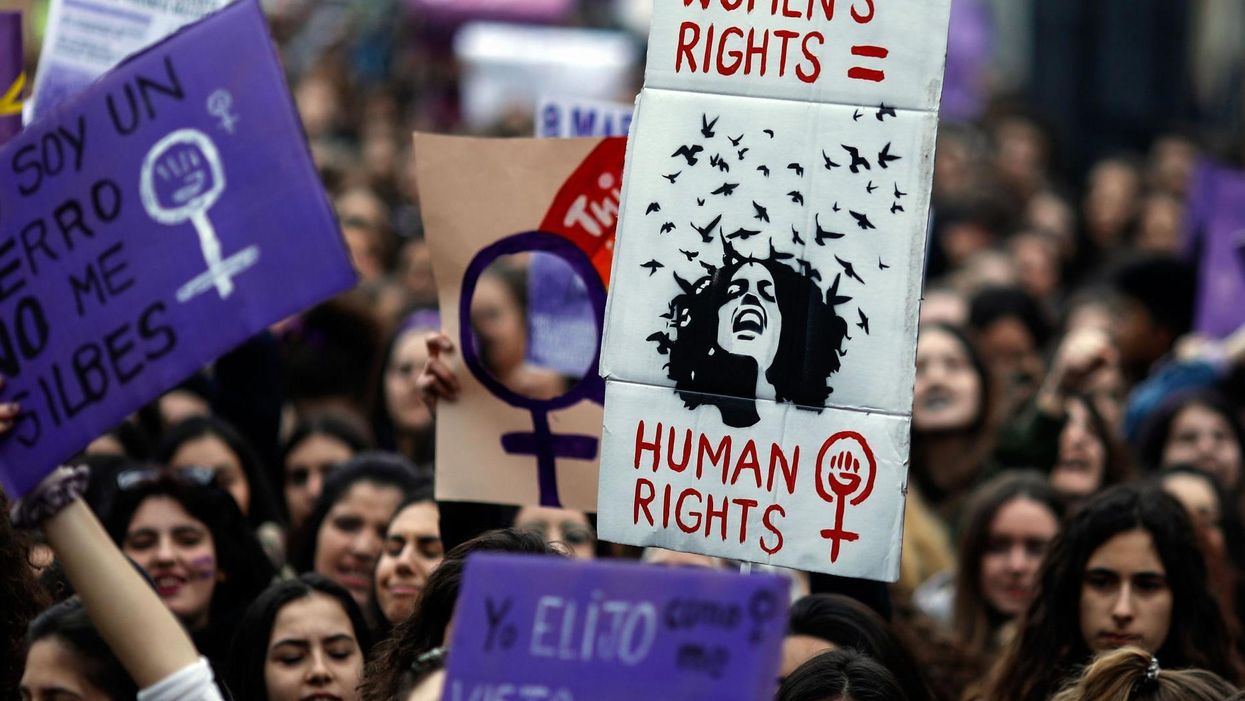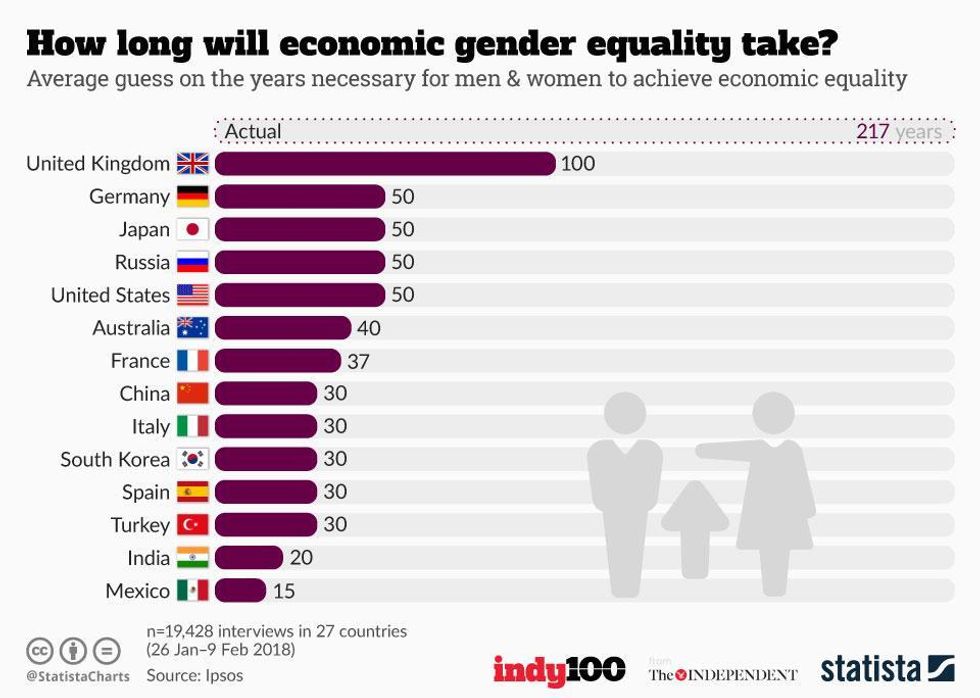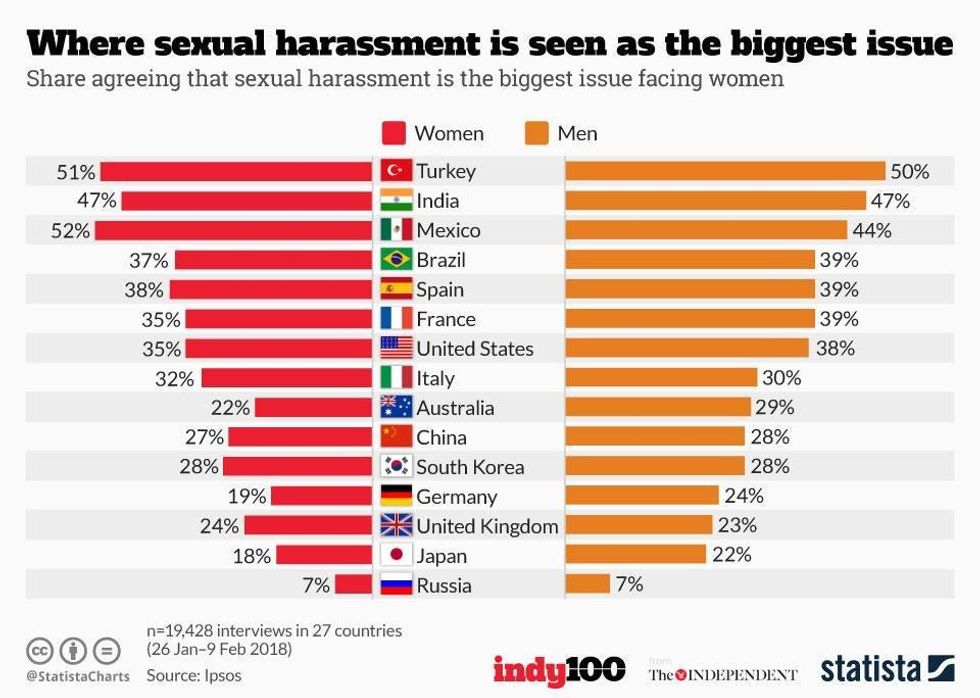Viral
Mimi Launder
Mar 09, 2018
We're not as close to equality as we think.
That's the conclusion of a special Ipsos survey conducted for International Women's Day 2018, a celebration on 8 March in which an entire 24 hours was dedicated to women.
Before any men complain about the apparent absence of International Men's Day, remember that – as feminists everywhere are bored of pointing out – guys get every other day of the year dedicated to them.
Also, it's on 19 November.
Anyway, these two charts provided to indy100 by Statista prove why we need days like International Women's Day.
Everyone massively underestimates how long it will take for women to actually achieve equality.
The people of Mexico and Saudi Arabia even estimated that women will have economic equality globally more than 200 years too early – and, no, enthusiastic rounding down doesn't stand up as an excuse for a guess that's off the mark by six to eight generations of women.
Meanwhile, the survey also showed that, in Great Britain and the US, people are far too optimistic about how long it wil take for men and women to have equal pay in their country: people in the US think it will be achieved in 2028, when it will actually be 2059. In the UK, people think it will be 2035, when it will actually be 2117.
All countries massively overestimate the proportion of female CEOs in the world's top 500 companies. While the actual figure is just 3 per cent, guesses average at 19 per cent.
Equal pay is seen as an issue in advanced European countries such as Sweden, Germany and France – and is often much more likely to be mentioned by women than men.
Sexual harassment is still seen as a huge issue for women internationally.
Across the study, sexual harassment is seen as the most urgent issue that women face – followed by sexual violence, physical violence, domestic abuse and sexual pay.
Yet every single country surveyed underestimated how many women say they have experienced sexual harassment since the age of 15 – most significantly in Sweden, where 81 per cent of women say they have been a victim, yet the average guess was 25 per cent lower than that.
The percentage of people who saw sexual and physical violence as stark obstacles to equality differed wildly between countries.
For example, half of people in Peru – where domestic violence is alarmingly prevalent – think physical violence is the most important issue facing women. In Great Britain, China, South Korea and Japan, it is mentioned by fewer than 10 per cent of people.
Despite this abundance of disturbing data, the majority of people in a large number of countries think that equal rights for women 'has gone far enough in my county'.
A remarkable 64 per cent of people in India and Spain, the worst offenders, think so.
In Great Britain and Japan, where the lowest proportion of people hold this view, it is 25 per cent and 22 per cent of people respectively.
Top 100
The Conversation (0)
















